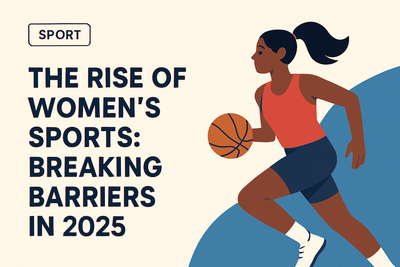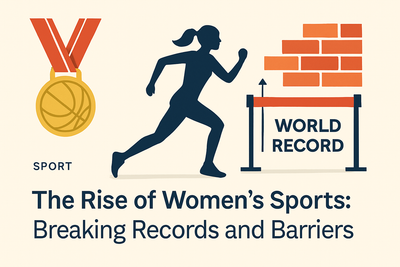Mental Toughness in Sports: Techniques Used by Champions
Introduction
In high-level competition, physical skill alone doesn’t guarantee victory. Mental toughness—the ability to stay focused, resilient, and composed under pressure—is often what separates champions from the rest. From Olympic gold medalists to world-class athletes, mental resilience plays a critical role in performance and recovery.

In this post, we’ll explore the key techniques used by elite athletes to develop and maintain mental toughness. These strategies not only enhance performance but also help in overcoming setbacks, maintaining motivation, and staying mentally sharp during the most intense moments of competition.
1. Visualization and Mental Rehearsal
One of the most common techniques among top athletes is visualization. This involves mentally rehearsing races, games, or plays before they happen. By vividly imagining themselves succeeding, athletes build neural patterns that mimic physical performance.
Example: Michael Phelps famously visualized every detail of his races nightly, from the dive to the moment he touched the wall. This practice helped him remain calm and confident—even when things didn’t go according to plan.
Benefits:
- Improves confidence
- Reinforces muscle memory
- Reduces performance anxiety
2. Goal Setting and Focus
Champions set clear, measurable goals—both long-term and short-term. Focused goal setting allows athletes to maintain motivation and direction, even when facing obstacles.
Technique: Use SMART goals—Specific, Measurable, Achievable, Relevant, and Time-bound—to stay on track.
Why it works:
- Keeps training purposeful
- Fosters a growth mindset
- Encourages accountability
3. Self-Talk and Positive Affirmations
The internal dialogue athletes engage in can greatly influence their performance. Positive self-talk replaces doubt and fear with confidence and control.
Example: Serena Williams has openly discussed how positive affirmations helped her stay mentally strong during matches.
Key Strategies:
- Replace negative thoughts with empowering ones
- Repeat mantras like “I am prepared” or “I can handle this”
- Practice regularly, not just before or during competition
4. Mindfulness and Meditation
Staying present and aware is crucial in high-pressure moments. Mindfulness practices teach athletes to focus on the now, reducing stress and improving concentration.
Scientific Insight: Studies show that mindfulness increases activity in parts of the brain responsible for attention and emotional regulation.
Popular Use: The Seattle Seahawks incorporated mindfulness into their training regimen, contributing to their Super Bowl win.
Benefits:
- Enhances concentration
- Lowers stress and anxiety
- Promotes emotional stability
5. Embracing Adversity and Building Resilience
Champions don’t avoid failure—they embrace it as part of the journey. Resilience is developed through facing challenges head-on and learning from them.
Case Study: Kobe Bryant’s legendary work ethic included analyzing every mistake to improve—not just physically but mentally.
How to Develop Resilience:
- Reflect on setbacks constructively
- Maintain a solution-focused mindset
- Seek feedback and apply it
Conclusion
Mental toughness isn't just a trait reserved for the elite—it's a skill that anyone can cultivate with practice and dedication. By incorporating techniques like visualization, focused goal setting, positive self-talk, mindfulness, and resilience-building strategies, athletes at any level can elevate their performance and face challenges with confidence.
Whether you’re a weekend warrior or aspiring pro, developing mental toughness could be your ultimate game-changer.
Want to build your mental edge? Start small—choose one technique above and make it part of your daily routine. The champions do it; now it’s your turn.








